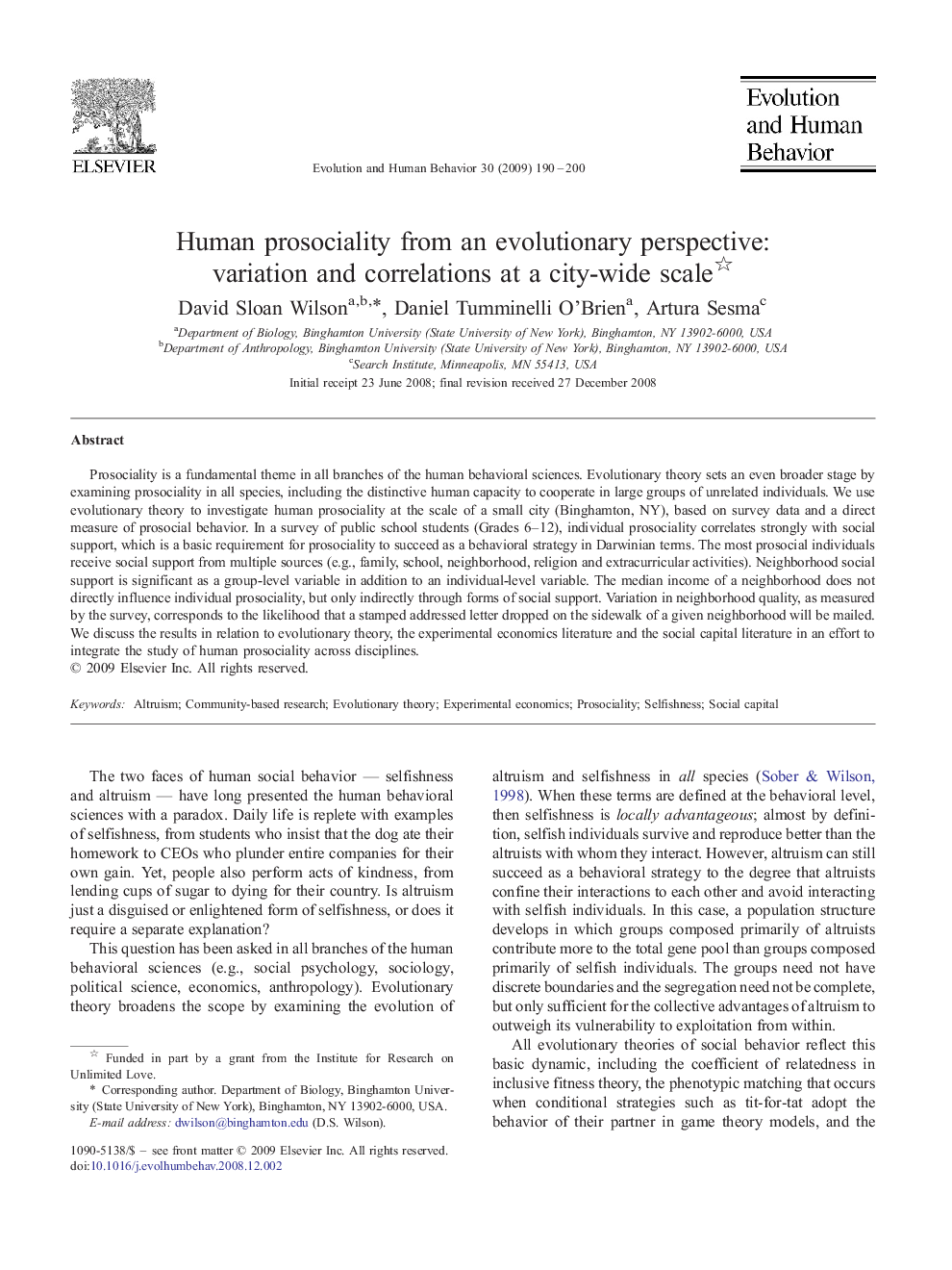| کد مقاله | کد نشریه | سال انتشار | مقاله انگلیسی | نسخه تمام متن |
|---|---|---|---|---|
| 943472 | 925473 | 2009 | 11 صفحه PDF | دانلود رایگان |

Prosociality is a fundamental theme in all branches of the human behavioral sciences. Evolutionary theory sets an even broader stage by examining prosociality in all species, including the distinctive human capacity to cooperate in large groups of unrelated individuals. We use evolutionary theory to investigate human prosociality at the scale of a small city (Binghamton, NY), based on survey data and a direct measure of prosocial behavior. In a survey of public school students (Grades 6–12), individual prosociality correlates strongly with social support, which is a basic requirement for prosociality to succeed as a behavioral strategy in Darwinian terms. The most prosocial individuals receive social support from multiple sources (e.g., family, school, neighborhood, religion and extracurricular activities). Neighborhood social support is significant as a group-level variable in addition to an individual-level variable. The median income of a neighborhood does not directly influence individual prosociality, but only indirectly through forms of social support. Variation in neighborhood quality, as measured by the survey, corresponds to the likelihood that a stamped addressed letter dropped on the sidewalk of a given neighborhood will be mailed. We discuss the results in relation to evolutionary theory, the experimental economics literature and the social capital literature in an effort to integrate the study of human prosociality across disciplines.
Journal: Evolution and Human Behavior - Volume 30, Issue 3, May 2009, Pages 190–200